
Josh Kraushaar of National Journal sets it up this way:
The reaction after President Trump’s tepid response to the neo-Nazi march in Charlottesville was swift and severe. One broadcast network devoted its entire nightly newscast to Trump’s chaotic press conference on Tuesday. The next day, The Economist portrayed the president screaming into a bullhorn shaped as a Ku Klux Klan hood on its cover—with other news magazines following suit. Many Republican officials have denounced the president in the sharpest terms since his election. Business leaders resigned from the president’s corporate councils in protest.
But in a repeat of myriad Trump campaign controversies, voters didn’t share the same level of outrage as the elites. The latest wave of polling shows that the president’s overall job-approval rating has inched upwards since the controversy, that a sizable majority of Americans support maintaining Confederate memorials instead of tearing them down, and that a notable minority agree with the president’s use of “both sides” language during Tuesday’s press conference.
I posted earlier in the week on a poll that showed over 60% of respondents agreed with Trump that Confederate statues should be left alone. Likewise a huge majority of Republicans supported Trump calling out left-wing violence in Charlottesville as well as the more narrative-friendly white supremacist violence.
Former Democratic Rep. Steve Israel put it best, writing in Newsday this week about a recent conversation he overheard at a Long Island diner. “Now they’re making a big deal about statues? Who cares about statues!” Israel recounted hearing. It’s why top Democratic strategists have urged their candidates not to talk to voters about impeachment or dwell on the hot-button issues driving media coverage.
Kaushaar also points out what has happened to Trump’s approval rating:
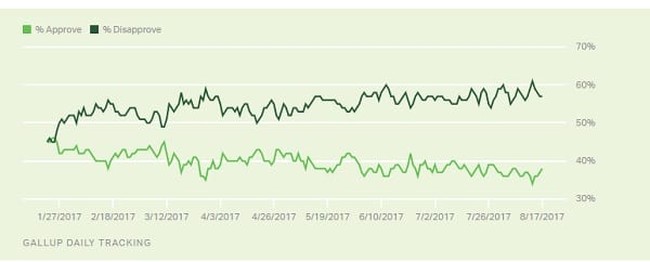
On August 13, Trump hit 34% approval rating. By Thursday he’d gained four points, to 38%, despite having the kitchen sink thrown at him.
The biggest divide in American society is between the elites who once reliably shaped public opinion and less-privileged voters, who are increasingly tuning out mainstream sources in favor of self-selected information networks. It’s a sobering reminder that the divisions in America are unlikely to dissipate anytime soon, and will probably worsen.
But it’s also a reminder that to have any chance at uniting the country, political leaders need to do their best at persuading a skeptical public of the rightness of their views—and not mock, shame, or dismiss people who hold different opinions. When the elites are so at odds with the public on issues of great consequence, a dose of humility may be in order.
And keep in mind that while 38% approval is not stellar, do you know when else Trump had a 38% approval rating? November 8, 2016.
1-Election Day 2016, Trump ran 8 points above his national favorability rating (38% in exit polls). 15% of "unfav Trump" voters voted Trump
— Dan McLaughlin (@baseballcrank) August 18, 2017

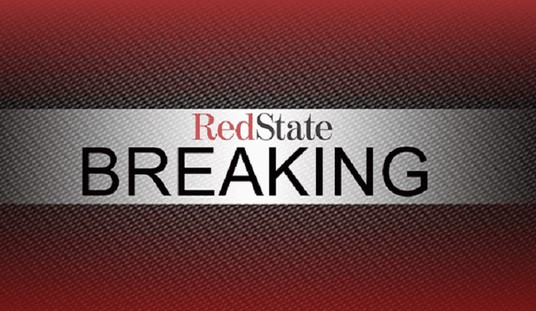
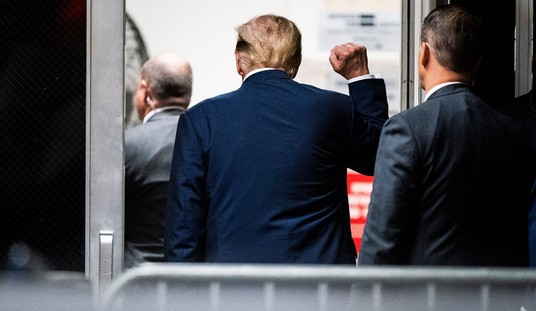

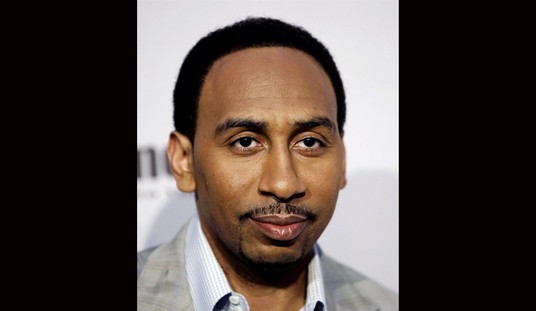
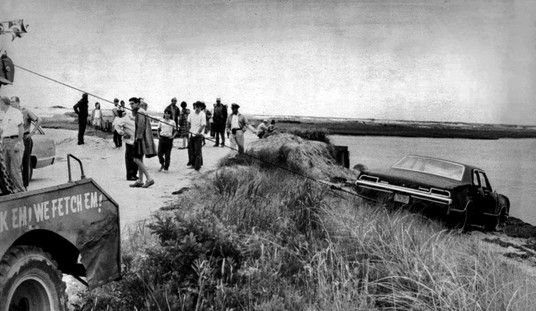


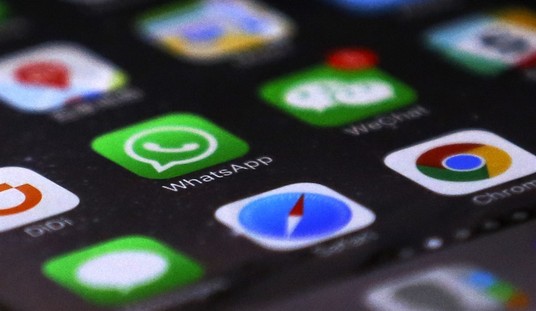
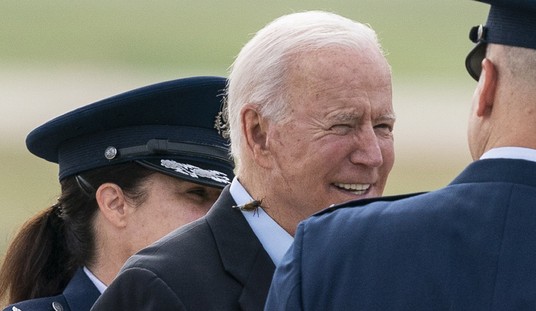

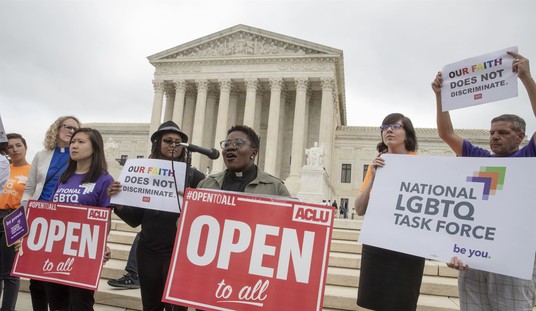

Join the conversation as a VIP Member